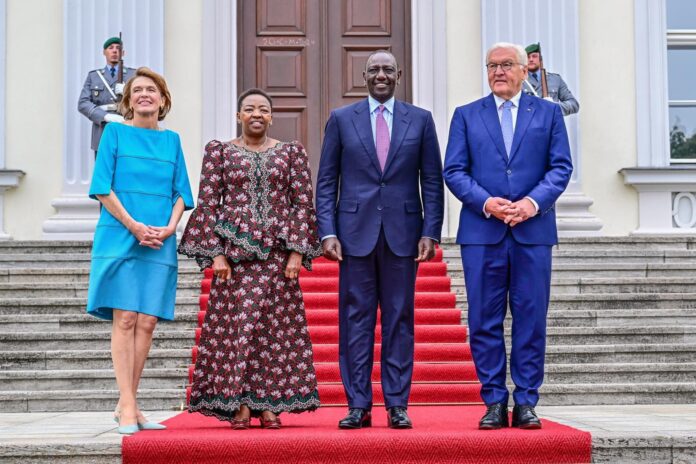Germany’s Federal Ministry of Interior and Community has firmly refuted circulating reports that the nation has signed a labour agreement with Kenya to facilitate the migration of 250,000 Kenyan workers to Germany.
The clarification follows a BBC report suggesting that the deal would provide vast employment opportunities for thousands of Kenyans.
The German Interior Ministry released an official statement emphasizing that the agreement does not specify any numerical quotas for skilled workers intending to travel to Germany.
“This information is clearly false,” the Ministry asserted via X (formerly Twitter). “The agreement between Germany and Kenya does not include any numbers or quotas. All applicants must fulfill the strict requirements of the German Skilled Immigration Act.”
The report had sparked a wave of reactions among residents in Germany, many of whom expressed skepticism and derision regarding the influx of migrant workers.
While the specifics of the deal remain somewhat ambiguous, it has been confirmed that Kenya and Germany signed an agreement on Friday aimed at facilitating the exchange of labor, talent, and mobility.
This cooperation framework aims to enhance collaboration in areas such as labour mobility, apprenticeships, student training, employee welfare, and the return of workers.
President William Ruto addressed these developments during a meeting with Kenyans living in Germany.
He emphasized the potential of both countries’ labour markets to contribute significantly to economic growth.
“Kenya greatly appreciates the support that has been extended by the German Government,” Ruto stated, adding that Kenya is well aware of Germany’s labour demands while highlighting the availability of qualified Kenyan professionals.
He reassured attendees that the Kenyan workforce would not be exploited in this arrangement.
Moreover, the German Interior Ministry noted that it is currently engaged in confidential discussions and negotiations with various countries, including Georgia, Moldova, Uzbekistan, Kyrgyzstan, Colombia, Morocco, Ghana, and the Philippines, to establish migration partnerships.
For now, both nations must navigate the complexities of international labour agreements while safeguarding the interests of citizens involved. As more information becomes available, Uzalendo News will continue to provide updates on this developing story.


















